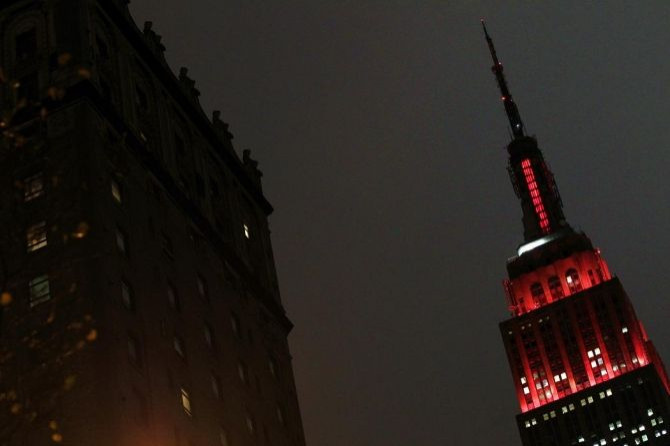NY HIV/AIDS Assistance Changes May Promote Risky Behavior, Homelessness

New York City Council members questioned policy makers at a hearing Wednesday over the recent changes to public assistance policies that they fear could lead to a surge in homelessness and risky behavior among vulnerable HIV/AIDS patients living in the city who are already struggling to keep up with bills.
One of the controversial changes is that people affected with the virus seeking rent assistance from the city are required to be screened for substance abuse and must accept treatment or lose eligibility for some housing services.
Although a city spokeswoman had said that nobody will be denied shelter because of the policy, but that did not ease the concerns of some lawmakers.
Councilman Jimmy Van Bramer of the City Council's general welfare committee said he was doubtful that the policy could accomplish the goal of reducing risky behavior.
"I believe you're punishing people, and in some ways pushing them away at the very moment when you should actually be bringing them closer," Van Bramer said at the hearing, according to AP.
However, HIV/AIDS Services Administration Deputy Commissioner Jacqueline Dudley defended the policy and said that the changes were about improving the health of HASA clients.
"It's the most responsible and caring thing that we can do, I believe, to encourage them to get into treatment," Dudley said.
Dudley said that the adherence to substance abuse treatment would just be a factor weighed in assessing clients’ eligibility for assistance.
A spokeswoman for HASA told AP that since the policy went into effect last fall about 650 HASA clients have been referred for treatment and about half of those submitted.
Councilwoman Maria del Carmen Arroyo asked Dudley what would happen to clients who refused to comply with substance abuse treatment.
"We want to actively try to engage them and try to work with them to accept the treatment," Dudley said. "Clients who are not compliant will be offered alternative housing," where on-site counselors will work with them on substance abuse. She noted that the alternative housing was already at 90 percent capacity.
Advocates said they were worried that the city was using housing as leverage to increase compliance with substance abuse treatment, and cited major studies in recent years that demonstrated the significance of stable housing for staying on life-saving medications, reducing risky behaviors and obtaining medical attention.
"They are making drug treatment the highest priority — above adherence to HIV antiviral medications, above survival," Ginny Shubert, a public policy researcher and consultant told AP. "It makes no sense. It is directly at odds with the way that other communities and that other public health approaches are going with."
New York City continues to be the focal point of the AIDS epidemic in the country, with more than 100,000 people in the city affected with the virus or disease.
HASA served more than 46,000 people in 2011 which included nearly 33,000 medically-eligible members of cases. Clients are assigned case managers and that support them with home care, counseling and cash assistance.
According to AP the city’s substance abuse policy first got attention last November when the agency’s commissioner wrote a World AIDS Day column for The Huffington Post “trumpeting” it.
Human Resources Commissioner Robert Doar had said in the column published Nov.30, 2011 that clients who refused to participate in treatment had two choices: Alternative housing with on-site substance abuse counselors or loss of eligibility for any assistance.
"This will stay in effect until proof of substance abuse treatment is established. Tough? Maybe. But New York City is serious when it comes to combating substance abuse," Doar had wrote.
Many HIV positive New Yorkers are upset with the new substance abuse policy.
"I think it's a violation of the individual," Wanda Hernandez, 49, who is HIV positive and board chair of the HIV advocacy group VOCAL-NY said to AP. "I don't think it should be a mandatory thing to corner somebody into this."
Published by Medicaldaily.com



























